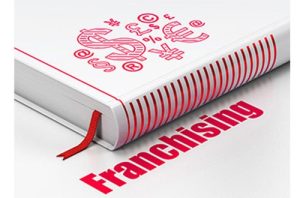 Congrats, so you have made the decision to buy a franchise.
Congrats, so you have made the decision to buy a franchise.
While the thought of running your very own franchise outlet may seem very exciting, franchise deals are intricate and complex.
Understanding the contract you get from your franchisor is critical. It can be the difference between spending time in court, losing money through litigation and dealing with conflicts that could have been easily avoided.
The franchise agreement outlines every detail of the relationship between you and your franchisor including the terms and conditions and the obligations of both parties.
The contract will set out terms for the use of materials including branding, trade marks, commercial symbols, logos or any similar marketing, what you should expect from the franchisor in terms of support and also protects you against practices such as overvaluation of royalty fees, advertising levies and so on.
However, for the contract to be legally binding it needs to comply with the Consumer Protection Act 68 of 2008 (CPA). While the legislation is associated with protecting consumers who may be buying big screen TVs or smartphones from unscrupulous suppliers – it also sets out the terms and conditions between a franchisee and a franchisor.
And because the franchisee is defined as the consumer by the act, they are entitled to certain protections according to the law.
To find out what these protections are and their scope, we speak to Era Gunning, senior associate at the law firm, ENSafrica.
How the Consumer Protection Act impacts the franchise agreement
The CPA prescribes certain formalities for franchise agreements. These include that the agreement must be in writing and signed by or on behalf of the franchisee. It must include any prescribed information and be in plain language.
It also gives you as the franchisee, the right to cancel a franchise agreement without cost or penalty within ten business days (the cooling-off period) after signing the agreement, by giving written notice to the franchisor.
See also: The top 5 franchise trends expected in South Africa in 2017
The protection afforded by the Consumer Protection Act
The agreement between the franchisor and franchisee is regulated by the CPA and so are the following:
- a solicitation of offers to enter into a franchise agreement;
- an offer by a potential franchisor to enter into a franchise agreement with a potential franchisee;
- a franchise agreement or an agreement supplementary to a franchise agreement; and
- the supply of any goods or services to a franchisee in terms of a franchise agreement.
As a general rule, a supplier must not require as a condition of supplying any goods or services or as a condition of entering into an agreement or transaction that the consumer must:
- purchase any other particular goods or services from that supplier;
- enter into an additional agreement or transaction with the same supplier or a designated third party;
- agree to purchase any particular goods or services from a designated third party, unless the supplier offers bundled goods or services separately and at individual prices or the supplier can show that the convenience to the consumer in having those goods or service bundled outweighs the limitation of the consumer’s right to choice or that the bundling of those goods or services results in economic benefit for consumers.
However, a franchisee may be required to purchase goods or services from a specific supplier at the direction of the franchisor if they are reasonably related to the branded products or services that are the subject of the franchise agreement.
The disclosure document
One of the major requirements of the CPA is that every franchisor must provide a prospective franchisee with a disclosure document. This document is aimed at giving you all the information you need regarding the franchise to make an informed decision. The document has to be dated and signed by an authorised officer of the franchisor, at least 14 days prior to the signing of a franchise agreement.
According to the CPA, the documents, as a minimum, must, among other things, contain:
- the number of individual outlets franchised by the franchisor;
- the growth of the franchisor’s turnover, net profit and the number of individual outlets, if any, franchised by the franchisor for the financial year prior to the date on which the prospective franchisee receives a copy of the disclosure document;
- a statement confirming that there have been no significant or material changes in the company’s or franchisor’s financial position since the date of the last accounting officer, auditor’s certificate or certificate by a similar reviewer of the company or franchisor, that the company or franchisor has reasonable grounds to believe that it will be able to pay its debts as and when they fall due; and
- written projections of potential sales, income, gross or net profits or other financial projections for the franchised business.
Where the CPA does not apply
Certain provisions of the CPA do not apply to franchise agreements. These include the provisions regulating:
- Expiry and renewal of fixed-term agreements;
- Consumer’s rights regarding the delivery of goods or the supply of services;
- Catalogue marketing;
- Trade coupons and similar promotions;
- Referral selling; and
- Over-selling and over booking.


